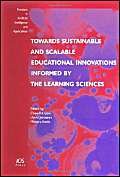紹介
One of the basic principles that underpin the learning sciences is to improve theories of learning through the design of powerful learning environments that can foster meaningful learning. Learning sciences researchers prefer to research learning in authentic contexts. They collect both qualitative and quantitative data from multiple perspectives and follow developmental micro-genetic or historical approaches to data observation. Learning sciences researchers conduct research with the intention of deriving design principles through which change and innovation can be enacted. Their goal is to conduct research that can sustain transformations in schools. We need to be cognisant of research that can inform and lead to sustainable and scalable models of innovation. In order to do so, we need to take an inter-disciplinary view of learning, such as that embraced by the learning sciences. This publication focuses on learning sciences in the Asia-Pacific context. There are researchers and young academics within the Asia-Pacific Society for Computers in Education (APSCE) community who are concerned with issues of conducting research that can be translated into practice.
Changes in practice are especially important to Asian countries because their educational systems are more centralised. That is why there is a need to reform pedagogy in a more constructivist and social direction in a scalable way.
目次
CONTENTS INCLUDE: An Analytic Model Based on ASP for Maintaining ZPDs in CSCL Environments
A Constraint-Based Tutor for Learning Object-Oriented Analysis and Design Using UML
A Case Study Describing the Creation and Implementation of a Capacity
Building Program for Mixed Mode Delivery of Academic Programmes in Developing Countries
Fostering Learning Communities Among Teachers and Students: Potentials and Issues
Group Metacognition in a Computer-Supported Collaborative Learning Environment
Examining the Psychological Impact of Video Cases for Teacher Education
Computer-Mediated Face-to-Face Interaction Supporting for Peer Tutoring
Public Computing, Computer Literacy and Educational Outcome: Children and Computers in Rural India
Summative Computer Programming Assessment Using Both Paper and Computer
Ontology-Driven Incremental Annotation of Educational Content for Instruction Planning
The Development of ClassSim: A Simulated Learning Environment to Support the Practicum Experience for Pre-Service Teachers
Innovative Learning and Unlearning
Implementation and Effectiveness of a Feedback Feature in Underlining to Promote Reading Comprehension of e-Learning Instructional Materials
Interactivity of Exercises in ActiveMath
EpiList II: Explicit Instructions for Development of Generic Cognitive Skills.
